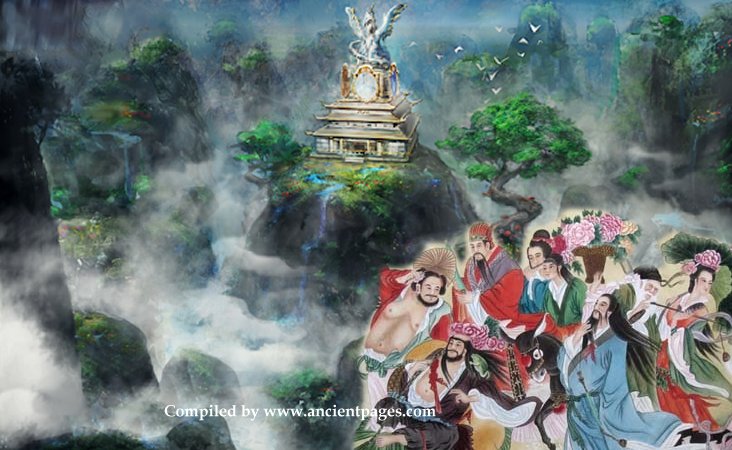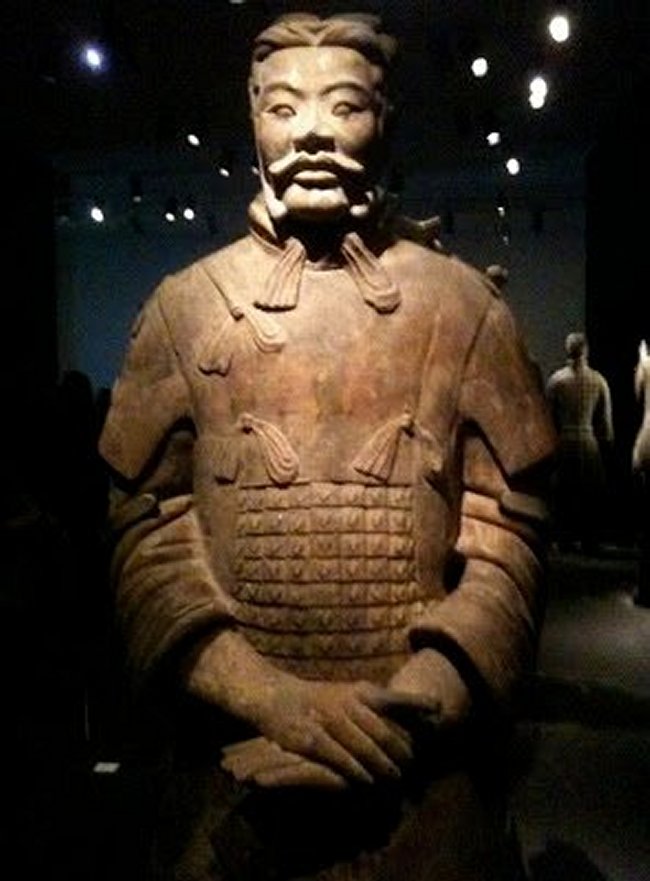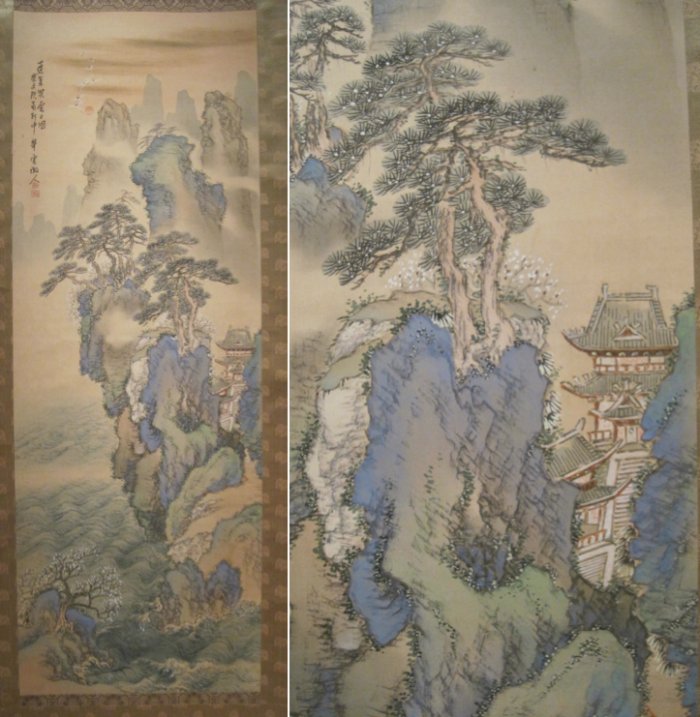Legendary Mount Penglai Where The Eight Immortals Reside
Ellen Lloyd - AncientPages.com - Mount Penglai is shrouded in mystery. It is a legendary land that many have tried to locate, but so far no one has succeeded in finding the mythological place where all living creatures are believed to be white.
Palaces are made from gold and platinum, and jewelry grows on trees. If the place truly exists, it has remained hidden from humans.
In Chinese mythology, Mount Penglai is the home of the Eight Immortals who we discussed previously on Ancient Pages.
The Eight Immortals knew the secrets of nature. These mysterious beings are regarded as super-humans who control all aspects of life. Each of the individual immortal’s power can be transferred to a tool of power that can give life or destroy evil.
The Eight Immortals are said to live on Penglai Mountain-Island, but the location of their home remains an unsolved mystery. Mount Penglai is also the home of Anqi Sheng, an immortal Chinese wizard.
Qin Shi Huang Search For Penglai Mountain And The Elixir Of Life
Qin Shi Huang, the First Emperor of a unified China, who ruled from 246 BCE to 210 BCE tried to several times find Mount Penglai. Qin Shi Huang learned that only immortals could reach the mysterious land where there is no winter.
Some ancient books mentioned Mount Penglai and Qin Shi Huang who was determined to obtain the herb of immortality that was said to grow there, set out an expedition to search for the lands of the Eight Immortals. However, no matter how hard he tried, Qin Shi Huang Huang couldn’t locate Mount Penglai and his quest for the elixir of life failed.
Like most mythological places inhabited by god-like beings, Mount Penglai is described as a paradise where there is no pain, hunger, or disease. People live in perfect harmony and magical fruits growing in Penglai can heal any disease, grant eternal youth, and even raise the dead. There is never any shortage of food. Rice bowls and wine glasses never become empty no matter how much people eat or drink from them.
Mount Penglai is said to be in the Bohai sea, off the Chinese coast. Credit: Yuan Jiang
The Liezi, a Daoist book attributed to Lie Yukou contains several stories about Daoist adepts trying to achieve longevity. The book mentions five islands that were called Penglai, Yingzhou, Fanghu, Yuanjiao, and Daiyu. Today, a city on the northern shore of the Shandong Peninsula is called Penglai.
Some Chinese nationalists try identifying the Penglai island with the Ryūkyū Islands (or even the island of Kyūshū), claiming that this is the reason why all islands in the Eastern Sea "belong to China". There are also those who claim that the mountain can be seen in form of the frequent mirages at sea. The location of Mount Penglai is still debated by scholars.
Mount Hōrai - Japanese Version Of Mount Penglai
In Japanese mythology, the story of Mount Penglai takes the shape of the legend of Mount Hōrai, but the two legendary places are very different. Mount Hōrai is not free from sorrow or death, and the winters are bitterly cold.
According to Japanese myths and legends, Mount Hōrai was a place where an individual was granted perception and knowledge of all ancient souls. It also believed that the inhabitants of Hōrai are small fairies who have no knowledge of evil. This is why their hearts are pure and they can never grow old.
Mount Hōrai by Komuro Suiun (1874-1945)
The Japanese have long regarded certain mountains as objects of worship. They believed that mountains are sacred places where numerous gods reside. This belief still lives on and is continuously practiced in Japan. Sacred Mount Fuji on Honshu Island, Japan has been a widely venerated mountain in Japan since ancient times. People of both Buddhist and Shinto faiths considered it an Abode of the Immortals.
Written by Ellen Lloyd – AncientPages.com
Copyright © AncientPages.com All rights reserved. This material may not be published, broadcast, rewritten or redistributed in whole or part without the express written permission of AncientPages.com
Expand for references
More From Ancient Pages
-
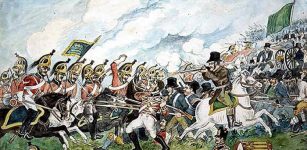 On This Day In History: Battle Of Vinegar Hill Took Place – On June 21, 1798
News | Jun 21, 2017
On This Day In History: Battle Of Vinegar Hill Took Place – On June 21, 1798
News | Jun 21, 2017 -
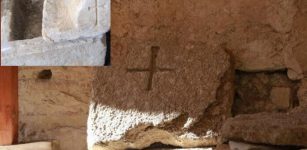 ‘Holystone’ – Stone Chest With Jesus Christ’s Cross Found At Balatlar Church In Turkey’s Sinop
Archaeology | Mar 4, 2020
‘Holystone’ – Stone Chest With Jesus Christ’s Cross Found At Balatlar Church In Turkey’s Sinop
Archaeology | Mar 4, 2020 -
 The Hitra Man Lived In A Turbulent Time – Was He A Stone Age Warrior?
Archaeology | May 10, 2024
The Hitra Man Lived In A Turbulent Time – Was He A Stone Age Warrior?
Archaeology | May 10, 2024 -
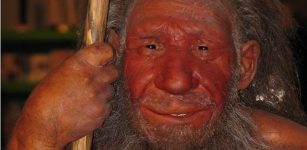 Do Neanderthal Genes Determine Our Skin Color And Sleep Patterns?
DNA | Aug 1, 2023
Do Neanderthal Genes Determine Our Skin Color And Sleep Patterns?
DNA | Aug 1, 2023 -
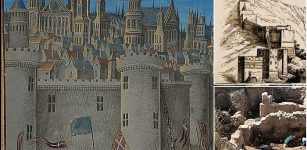 Late Roman-Era Rooms, Offering Vessels Unearthed At Ancient City Of Antiocheia, Southern Türkiye
Archaeology | Oct 31, 2022
Late Roman-Era Rooms, Offering Vessels Unearthed At Ancient City Of Antiocheia, Southern Türkiye
Archaeology | Oct 31, 2022 -
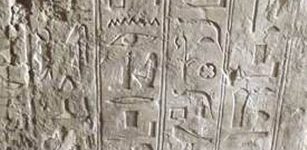 Tomb of the 26th dynasty vizier of Upper Egypt discovered in South Assassif, Luxor
Civilizations | Aug 31, 2015
Tomb of the 26th dynasty vizier of Upper Egypt discovered in South Assassif, Luxor
Civilizations | Aug 31, 2015 -
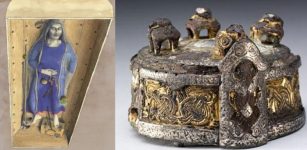 Mysterious Ancient Grave With Unusual Artifacts That Belonged To A Völva – Norse Female Shamans Did Exist
Featured Stories | Jul 2, 2017
Mysterious Ancient Grave With Unusual Artifacts That Belonged To A Völva – Norse Female Shamans Did Exist
Featured Stories | Jul 2, 2017 -
 Unsolved Enigma Of The Lost Ancient City In The Kalahari Desert
Ancient Mysteries | Aug 29, 2015
Unsolved Enigma Of The Lost Ancient City In The Kalahari Desert
Ancient Mysteries | Aug 29, 2015 -
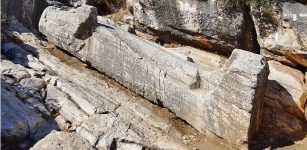 Enigma Of Giant Statue Of Kouros Of Apollonas
Featured Stories | Jul 18, 2019
Enigma Of Giant Statue Of Kouros Of Apollonas
Featured Stories | Jul 18, 2019 -
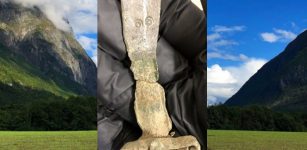 1154 Ancient Holes At Løykja Reveal Something Extraordinary – Archaeologists Say
Archaeology | Jul 17, 2020
1154 Ancient Holes At Løykja Reveal Something Extraordinary – Archaeologists Say
Archaeology | Jul 17, 2020 -
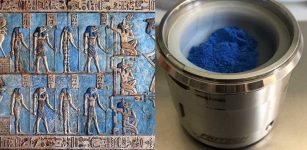 Ancient Egyptian Blue Used To Create New Nanomaterial 100,000 Times Thinner Than A Human Hair
Ancient Technology | Mar 24, 2020
Ancient Egyptian Blue Used To Create New Nanomaterial 100,000 Times Thinner Than A Human Hair
Ancient Technology | Mar 24, 2020 -
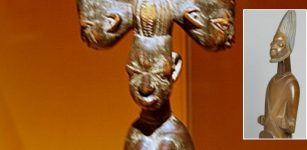 Shango: Powerful Thunder God And Symbol Of Kingship Among Yoruba People Of West Africa
African Mythology | Mar 4, 2019
Shango: Powerful Thunder God And Symbol Of Kingship Among Yoruba People Of West Africa
African Mythology | Mar 4, 2019 -
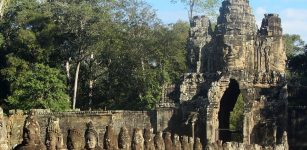 Demise Of Cambodian City Angkor Caused By Decline In Occupation And Not Abrupt Collapse
Archaeology | Apr 18, 2019
Demise Of Cambodian City Angkor Caused By Decline In Occupation And Not Abrupt Collapse
Archaeology | Apr 18, 2019 -
 Advent: Facts And History About The Christian Season Celebration
Christmas Traditions | Dec 1, 2024
Advent: Facts And History About The Christian Season Celebration
Christmas Traditions | Dec 1, 2024 -
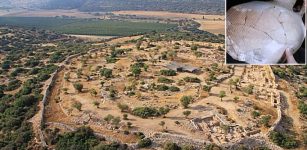 Biblical Tefach: Amazing ‘Common Constant’ Found Among Ancient Storage Jars In Israel
News | Oct 14, 2020
Biblical Tefach: Amazing ‘Common Constant’ Found Among Ancient Storage Jars In Israel
News | Oct 14, 2020 -
 Danger Lurking In The Woods – Unknown Force And Mysterious Lights – Part 1
Featured Stories | Jul 6, 2018
Danger Lurking In The Woods – Unknown Force And Mysterious Lights – Part 1
Featured Stories | Jul 6, 2018 -
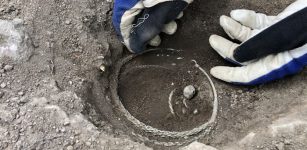 Wonderful And Unique Viking Silver Treasure Uncovered In Täby In Stockholm, Sweden
Archaeology | Nov 29, 2022
Wonderful And Unique Viking Silver Treasure Uncovered In Täby In Stockholm, Sweden
Archaeology | Nov 29, 2022 -
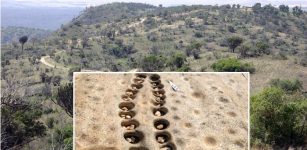 ‘Arcade’ Of Ancient Mancala Game Boards Carved On Rocks Found In Lewa Wildlife Conservancy, Kenya
Archaeology | Feb 2, 2024
‘Arcade’ Of Ancient Mancala Game Boards Carved On Rocks Found In Lewa Wildlife Conservancy, Kenya
Archaeology | Feb 2, 2024 -
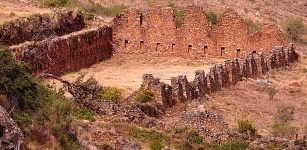 Inca Llajta: Largest And Most Impressive Inca Complex In Bolivia
Civilizations | Dec 6, 2018
Inca Llajta: Largest And Most Impressive Inca Complex In Bolivia
Civilizations | Dec 6, 2018 -
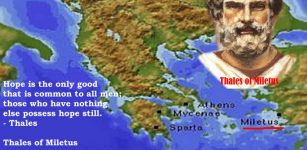 Thales Of Miletus: One Of The Famous “Seven Sages Of Greece” Who Predicted A Solar Eclipse
Featured Stories | Aug 12, 2016
Thales Of Miletus: One Of The Famous “Seven Sages Of Greece” Who Predicted A Solar Eclipse
Featured Stories | Aug 12, 2016

